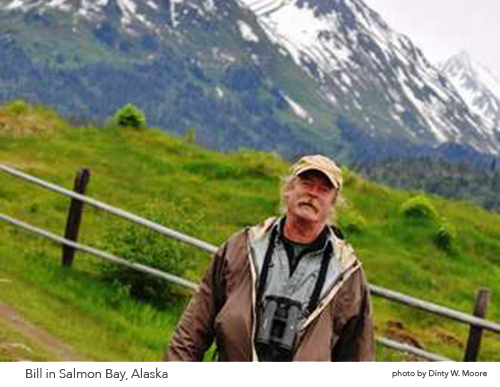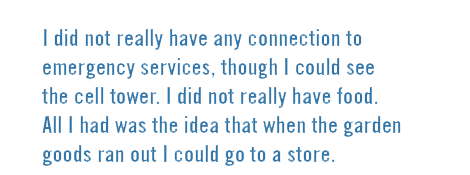Bad Advice Wednesday: Listen to Bill
categories: Cocktail Hour
Comments Off on Bad Advice Wednesday: Listen to Bill
Bill is guest starring over at the Lookout-Ecotone blog and we have decided to do a little cross-pollinating:
In House Guest, we invite Ecotone and Lookout authors, cover artists, and editors from peer presses and magazines to tell us what they’re working on, to discuss themes in their writing or unique publishing challenges, to answer the burning questions they always hoped a reader would ask. Bill Roorbach‘s stories have twice appeared in the pages of Ecotone. In this post, he recounts the origin of his story “Broadax Inc.,” reprinted in Astoria to Zion: Twenty-Six Stories of Risk and Abandon from Ecotone’s First Decade.
working on, to discuss themes in their writing or unique publishing challenges, to answer the burning questions they always hoped a reader would ask. Bill Roorbach‘s stories have twice appeared in the pages of Ecotone. In this post, he recounts the origin of his story “Broadax Inc.,” reprinted in Astoria to Zion: Twenty-Six Stories of Risk and Abandon from Ecotone’s First Decade.
__________________________________
“Broadax Inc.” came about because of a ten-day power failure here in western Maine a few years ago, one that had nothing to do with weather (which would be the usual case), but with a technical break somewhere in the grid that caused cascading outages as switches and transformers and other bits and pieces no one of us knows enough about to fix overloaded and burned up—real flames.
I was in the grocery store at the time, waiting in line with my full cart in the glow of some battery-powered emergency lights. The poor woman at the one open cash register had no idea what to do. The cash drawer wouldn’t open without power, so she had no change, and no accounting system. The night manager scratched her head too. I suggested they write down what people had bought and we’d come pay later (I had no cash), but they didn’t even know what anything cost because all that was reported through the laser system. You could write it down item by item, I suggested.
“Well, you can’t leave the store with unpaid merchandise,” the manager said.
In the end there was no solution and all of us in line abandoned our carts. At home, relative comfort. We heat with wood and can cook on the woodstove. And because it’s Maine I keep twenty gallons of water in the basement for such emergencies, so we were able to flush the toilets and could go outside if necessary, no big deal, even as the outage wore on.
What was a bigger deal was maintaining my work life, which is dependent in more ways than I realized on computers and the Internet. I own pencils and still have paper around, so I could write, but I couldn’t access the most recent drafts of two pieces that were on deadline, which is to say I had no access of any kind to the work that was due by e-mail during those days. My cell phone died before I thought to call my editors. I rewrote from memory by hand and put a literal manuscript in the mail—no sign of my old Hermes 3000 typewriter in the barn where last I saw it.

I’d been shopping because we needed food. Now we ate what canned things we had, and pasta. I rehydrated beans from the summer and added stuff I found in the freezer, which remained frozen because it was winter. One restaurant in town used solely gas and they stayed open under candles for two nights till the food was gone and every dish was dirty. Fun while it lasted: bring your own icicle for your drink.
Day seven and it hit me: I did not really have any money. No one does (short of barter, I mean). All we have is electronic promises. I did not really have any correspondents. All I had were electronic addresses, and no way to look up addresses in the physical world. I felt safe, but I did not really have any connection to emergency services, though I could see the cell tower. I did not really have food. All I had was the idea that when the garden goods ran out I could go to a store. But the store had no way to sell till day five, when the generator got there. By then, after two trips to the hardware store (which is very old school in any case, and where they didn’t miss a beat, just made invoices on yellow pads), and numerous trips to help friends, I had so little gas in the cars (simple bad timing) that I couldn’t go anywhere except on skis. Skis were real. The snow was real.
And our house was real. And our wood pile, which saved us.
And so on.
I thought, how about a story where a guy living entirely in the abstract electrical world of corporate money was laid low by someone who could control the access to the abstractions. At long last he’d realize: money doesn’t exist. In the end, he’d have only what he really had, the stuff we can touch, and he’d feel lucky to have that.
Bill Roorbach‘s newest novel is Life Among Giants. His next, to be released in 2014, is The Remedy for Love. His short fiction has appeared in Harper’s, the Atlantic, Playboy, and lots more places, such as on NPR’s Selected Shorts. He was a cake judge on Food Network, but only once.

